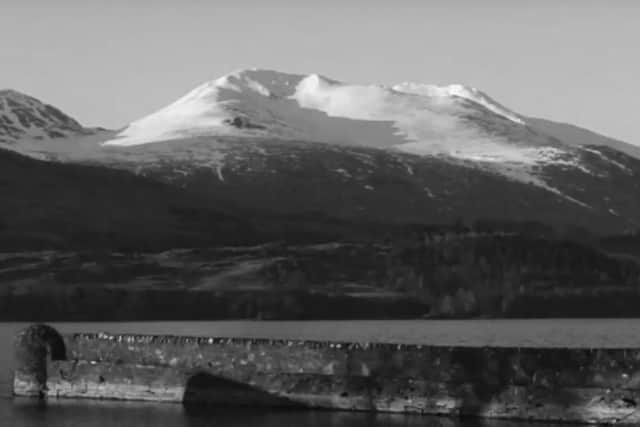Celebrating 90 years since the first Scottish ski race, the 1934 Killin Slalom
On 10 March this year, the Scottish skiing community can look forward to a significant birthday: the 90th anniversary of the first ever competitive ski race on Scottish snow. The newspapers of the time – including this one – appear to have made an almost comically inept job of covering this landmark event when it happened (more of which later) so, by way of a belated apology, let’s try to do it some sort of retrospective justice here.
Having developed the rules for modern slalom skiing in 1922, Sir Arnold Lunn was something of a snowsports celebrity when he was invited to address the Scottish Ski Club in November 1933, and he so impressed those present that they resolved to hold a race in Scotland as soon as possible. Unfortunately, the start of 1934 turned out to be unseasonably warm and dry, making a race impossible, but when snow fell in early March, two members of the club drove up to Killin beside Loch Tay to assess the conditions.
Advertisement
Hide AdAdvertisement
Hide AdIn the days before Scotland’s existing ski centres were developed, the hills on the north side of Loch Tay – and in particular Beinn Ghlas – were the epicentre of the country’s nascent ski scene, being convenient for both Edinburgh and Glasgow. In 1932, the SSC had constructed a hut beneath the mountain’s western face, about an hour’s walk from the road, and this soon became a meeting place for enthusiasts from all over the country.
Having established that the snow conditions would be suitable for racing on 10 March, the two SSC representatives then set about booking accommodation for competitors at the Killin Hotel. As the entry in the Scottish Ski Club Journal puts it, they “spent an entertaining half hour with a very efficient lady in the office trying to fit nine assorted husbands and wives, bachelors and spinsters, into two staff rooms and an attic.”
Soon, calls from newspapers started to come in. “The society editor of The Scotsman wanted to know if any people with titles would be there, and if so, whom? They were regretfully told that we could not say.” When the SSC failed to even supply the names of “any well-known Edinburgh people” who might be in attendance, The Scotsman’s society editor “rather disappointedly rang off.”
Still, our colleagues in the west didn’t exactly cover themselves in glory either, when it came to capturing this moment for posterity. According to the SSC: “The Glasgow Herald did not ring up until after the race, and then they rang to see where the photographer should stand in order to take the best photographs.”
Happily, we have the account in the SSC Journal to fall back on, which begins by noting that the weather on the 10th was far from ideal – “high wind, driving snow and very cold.” This being Scotland in the 30s, however, the organisers pressed ahead anyway, setting a course on a “moderately steep bit of the hill” near to the Beinn Ghlas hut.


To begin with, at least, the conditions seem to have been reasonable: “The snow, after being broken up and stamped down, was perfectly good, rather slow and quite easy. Just how easy was soon shown by Patricia Raeburn, who made a flawless descent.”
However, as the day wore on, things deteriorated: “For the second run, conditions... became really bad and the intense cold was supplemented by snow falling as well as being blown across the hill, which rendered visibility very poor.”
In spite of the weather taking a turn for the worse, though, “the show was carried through somehow, and everyone scrambled back to the hotel to the comforts of drinks, fires and baths.”
Advertisement
Hide AdAdvertisement
Hide AdAt a dinner at the hotel that night for some 60 people, Raeburn was confirmed as the winner of the first ski race held in Scotland. The disparity between the time she achieved for her first run – 20.6 seconds – and the time she achieved for her second – 28 seconds – is probably a good indication of the extent to which the weather had worsened during the day.
The significance of the Killin Slalom is summed by veteran Scottish skier Myrtle Simpson in her book Skisters: The History of Scottish Skiing. “The race generated an extraordinary amount of enthusiasm and fun, although the weather had been appalling,” she writes. “This was typical of Scottish skiing, then and now, and points to the significant difference between people who ski happily in Scotland and those to be found in the Alps. Scottish skiers have an unlimited capacity to put their heads down against a blizzard, knowing that eventually the sun will shine and conditions equal those on the continent. At heart, all Scottish skiers have to be mountaineers, that is, people who love the hills in all weathers and have mastered the ability to travel in them in all conditions.”
If the first ever ski race in Scotland had taken place on a still, sun-drenched afternoon, in other words, it wouldn’t have said half as much about the national character.
